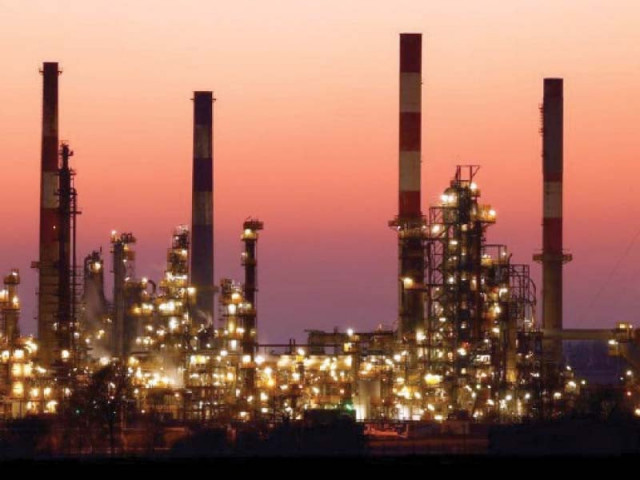SIFC backs plans for upgrading refineries
Pushes for inking deals with companies to increase output, produce clean fuels

The Special Investment Facilitation Council (SIFC), chaired by Prime Minister Shehbaz Sharif, is pushing for signing critical plant upgrade agreements between five domestic oil refineries and the Oil and Gas Regulatory Authority (Ogra).
This effort aligns with the goal of lifting the country’s oil refining capabilities following adoption of a new brownfield refinery policy, recently discussed by the SIFC apex committee. Four of Pakistan’s major refineries – Attock Refinery Ltd (ARL), Cnergyico PK, National Refinery Limited (NRL) and Pakistan Refinery Limited (PRL) – are prepared to sign agreements with the regulator.
A draft agreement, which is to be signed by these companies, has already been prepared and submitted to Ogra. Efforts are afoot to also include Pak Arab Refinery (Parco) in this transformative initiative.
The SIFC apex committee has been informed that a summary proposing a six-month extension in the deadline for signing plant upgrade agreements has been submitted for consideration of the Cabinet Committee on Energy. After its approval, refineries will ink the agreements.
As a top priority, the SIFC is looking for resolution of all the issues causing delays in implementation of the refinery policy. This includes a settlement agreement with Cnergyico, as recommended earlier. The SIFC has directed the secretaries of petroleum, finance and law to finalise the settlement at the earliest and report to the committee.
It has also been decided that the Petroleum Division will take Parco on board, with directives to the petroleum secretary and Ogra chairman to present updates in the next meeting. The federal cabinet approved earlier this year the Pakistan Oil Refining Policy for Up-gradation of Existing/ Brownfield Refineries 2023, after over four years of work on developing the policy. Originally, the deadline for signing the upgrade agreements was April 22, 2024.
ARL Chief Executive Officer Adil Khattak, who is also chairman of the Oil Companies Advisory Council (OCAC), has previously brought the government’s attention towards delays in implementing the oil refinery policy, which has caused a loss of billions of dollars to the country.
With the inking of agreements, the refineries are expected to start working on their upgrade projects with an estimated investment of $5 billion to $6 billion. This investment is projected to nearly double the country’s petrol production capacity and increase diesel output by 47%. At the same time, the production of low-value furnace oil will go down by 78%.
Cnergyico PK Vice Chairman Usama Qureshi confirmed to The Express Tribune that the company was in the process of preparing a draft agreement and was willing to commence the upgrade project.
“Cnergyico is looking forward to signing the upgrade agreement with Ogra and a settlement agreement with the government this month,” Qureshi said. “We have finalised plans to invest more than $1 billion to modernise our oil refining complex. This will significantly enhance the company’s production of environmentally friendly Euro-V compliant fuels while reducing the country’s dependence on costly refined product imports.”
Moreover, a recent development in the National Assembly sparked concern in the refining industry.
A budget proposal presented on June 12, 2024 revealed plans to reduce customs duty on the import of high-speed diesel from 10% to 0%, seemingly contradicting the very spirit of the refinery policy. However, following consultations, the authorities clarified that the change would be reclassified as a “regulatory duty” effective from July 1, as long as it was 10% and in line with the essence of the oil refinery policy.


















COMMENTS
Comments are moderated and generally will be posted if they are on-topic and not abusive.
For more information, please see our Comments FAQ